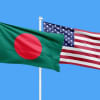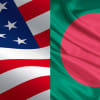Ticfa meeting in Nov: Bangladesh to seek GSP revival

Bangladesh will again raise the issue of the reinstatement of the Generalised System of Preferences (GSP) of the US in the Trade and Investment Cooperation Forum Agreement (Ticfa) meeting in Washington in November, said Tapan Kanti Ghosh, senior secretary to the commerce ministry, yesterday.
Currently, the US does not provide the GSP to any country. The tenure of the latest GSP programme came to an end in 2020 and the US Congress has not revived it since.
Still, Bangladesh will again urge the United States Trade Representative (USTR) to revive the GSP for Bangladesh once the US Congress adopts a new GSP programme for different countries in the near future, said Ghosh.
This is because Bangladesh has made improvements in workplace safety, which was one of the preconditions of the US government, he said.
The USTR suspended the GSP facility for Bangladesh on June 27, 2013 citing poor labour rights and poor workplace safety following two industrial disasters.
One was the Tazreen Fashions fire that killed more than 110 workers in November 2012 and the other was the Rana Plaza building collapse in April 2013 which killed 1,138 workers.
The then Obama administration also came up with a 16-point precondition necessitating improvements from the government and the private sector for the reinstatement of the GSP.
Bangladesh has amended the labour law and made improvements in workplace safety following guidelines of two international platforms, Accord and Alliance, and submitted the progress reports to the USTR twice for revival of the GSP.
However, the US government did not revive the GSP for Bangladesh, mentioning that further improvements were needed in labour rights.
The government continues to lobby the USTR, maintaining that massive improvements have been brought about in labour rights and workplace safety.
Talking to The Daily Star over the phone, Ghosh said he had held a meeting with Christopher Wilson, assistant USTR for South and Central Asia, at his secretariat office in Dhaka yesterday.
Wilson had again suggested that Bangladesh make improvements in labour rights and intellectual property rights issues for attracting foreign direct investment (FDI) from America, said the senior secretary.
Bangladesh will highlight the progresses made over labour rights and workplace safety in the November Ticfa meeting so that the country is included in the future GSP programme, he said.
Ghosh sought more FDI and technology transfer from the US.
"Moreover, we sought US support in the WTO so that the proposed duty-free market access benefit is extended to the graduating least developed countries (LDCs), including Bangladesh, for at least six years," he said.
Before the suspension, Bangladesh used to export goods like dry fish, ceramics and tobacco items worth $24 million to the US under the GSP programme.
The US government does not allow duty benefit under the GSP for garment items from any country, except for 38 African nations under an African Growth and Opportunity Act (AGOA) that was extended until 2025.
The fifth Ticfa Council was held in Dhaka on March 5, 2020. The United States-Bangladesh Ticfa was signed in 2013.
The US is the single largest export destination for Bangladesh, taking in goods worth over $10 billion of which more than 95 per cent are garment items.

 For all latest news, follow The Daily Star's Google News channel.
For all latest news, follow The Daily Star's Google News channel. 








Comments